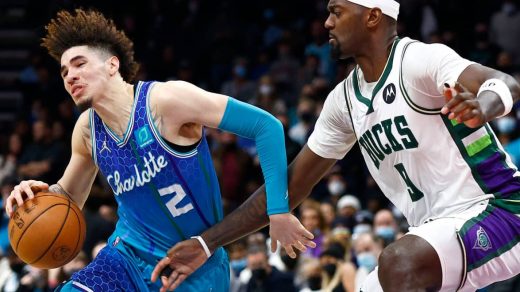Esports has transformed from underground gaming competitions into a multi-billion-dollar global industry that rivals traditional sports in viewership and revenue.
What was once considered a niche hobby is now a legitimate career path for thousands of professional players, coaches, and content creators worldwide.
At the heart of this revolution are the esports organizations—teams that have built empires around competitive gaming.
Companies like TSM, 100 Thieves, and Team Liquid have become household names, not just in gaming circles but in mainstream culture.
These organizations represent more than just competitive teams; they’re lifestyle brands, entertainment companies, and global businesses that generate hundreds of millions in revenue.
The success of these teams comes from multiple sources: tournament winnings, lucrative sponsorship deals, merchandise sales, content creation, and massive fan followings across social media and streaming platforms.
Top 10 Most Successful Esports Teams of All Time

For comprehensive coverage of these teams, their tournaments, and the latest competitive gaming updates, etruesportslive.com provides in-depth analysis and news about the esports industry.
In this article, we’ll explore the 10 most successful esports teams based on market valuation, fan engagement, tournament performance, and global impact. These organizations have shaped competitive gaming and continue to push the industry forward.
Top 10 Most Successful Esports Teams of All Time
TSM – $540 Million Valuation
Founded: 2009
Headquarters: Los Angeles, California
Active Divisions: Apex Legends, Counter-Strike 2, Fortnite, Valorant
TSM (Team SoloMid) sits atop the esports world as the most valuable gaming organization globally. With an estimated valuation of $540 million according to Forbes’ 2022 research, TSM has seen remarkable growth—a 32% increase from just two years prior.
The organization’s explosive value growth can be attributed to strategic business decisions, particularly the $210 million naming rights agreement with FTX crypto exchange (though this partnership later dissolved following FTX’s collapse). Beyond sponsorships, TSM has diversified its revenue streams through innovative products.
Key Revenue Drivers:
- Blitz App: A training platform designed to help players improve in games like League of Legends, Fortnite, and Free Fire
- Dyno Bot: A Discord moderation tool that assists server administrators
- Traditional esports revenue from tournaments and sponsorships
- Massive social media presence with millions of followers
TSM’s founder, Andy “Reginald” Dinh, built the organization from a League of Legends fansite into a global powerhouse. The team has competed in multiple games and consistently fields competitive rosters across various titles.
What sets TSM apart is its ability to create value beyond just winning tournaments. Their business model focuses on building sustainable revenue through technology, partnerships, and brand recognition. This forward-thinking approach has made them the benchmark for esports organization success.
100 Thieves – $460 Million Valuation
Founded: 2017
Headquarters: Los Angeles, California
Active Divisions: Call of Duty, League of Legends, Valorant
100 Thieves represents the new generation of esports organizations—one that blends competitive gaming with lifestyle branding. Founded in 2017 by former Call of Duty pro Matthew “Nadeshot” Haag, 100 Thieves has grown at an astonishing pace, reaching a $460 million valuation in just five years.
What makes 100 Thieves unique is their dual identity. Yes, they field competitive teams in major esports titles, but they’re equally focused on being a premium lifestyle brand. Their apparel drops sell out within minutes, and their content creation rivals major entertainment companies.
Why 100 Thieves Succeeded:
- Defied industry trends by tripling in value from 2020 to 2022
- Strategic partnership with Adidas for collaborative apparel collections
- Strong content creation with popular YouTube series and documentaries
- Celebrity investors and mainstream appeal
- Focus on quality over quantity in team rosters
The organization’s headquarters, called the 100 Thieves Cash App Compound, serves as both a training facility and content creation studio. This reflects their philosophy: competitive success matters, but building a recognizable brand matters just as much.
100 Thieves has proven that esports organizations can succeed by thinking beyond just tournament results. Their merchandise sales, sponsorship deals, and content views generate substantial revenue independent of competitive performance, creating a more sustainable business model.
Team Liquid – $440 Million Valuation
Founded: 2000
Headquarters: Utrecht, Netherlands
Active Divisions: Counter-Strike: Global Offensive, League of Legends, Valorant, Dota 2, and 20+ others
Team Liquid stands as one of esports’ most respected and enduring organizations. Founded in 2000, they’ve witnessed the entire evolution of competitive gaming—from early LAN tournaments to today’s stadium-filling championships.
Currently valued at $440 million, Team Liquid’s longevity and multi-regional approach set them apart. They operate teams across Europe, North America, South America, and Asia, with competitive rosters in over 20 different esports titles. This diversity means they’re never dependent on a single game’s success.
Team Liquid’s Strengths:
- Multi-regional presence creates global brand recognition
- Competitive teams across more titles than any other organization
- Strong community initiatives and grassroots support
- Professional video content division
- Consistent tournament success across multiple games
Team Liquid’s approach emphasizes professionalism and player development. They invest heavily in coaching staff, training facilities, and player welfare, creating an environment where competitors can thrive long-term.
The organization has won championships in League of Legends, Dota 2, Counter-Strike, Rainbow Six Siege, and numerous other titles. This consistent success across different games demonstrates their ability to build winning teams regardless of the title, showcasing superior management and scouting.
FaZe Clan – $400 Million Valuation
Founded: 2010
Headquarters: Los Angeles, California
Active Divisions: Call of Duty, Counter-Strike 2, EA Sports FC, Fortnite
FaZe Clan transcended esports to become a cultural phenomenon. What started as a Call of Duty trick-shot YouTube channel evolved into a $400 million organization that bridges gaming, entertainment, and mainstream culture.
FaZe’s popularity stems from their unique approach—they’re simultaneously a competitive esports organization and an influencer collective. Their roster includes not just professional players but also content creators, musicians, and celebrities. This crossover appeal has made FaZe instantly recognizable even outside gaming communities.
FaZe Clan’s Cultural Impact:
- Massive social media presence with hundreds of millions of followers
- Collaborations with major music artists and celebrities
- 31% valuation growth over two years
- Acquired by NASDAQ-listed GameSquare in 2023
- Strong presence in streetwear and fashion
In October 2023, GameSquare acquired FaZe Holdings in an all-stock deal, bringing FaZe under a publicly traded company’s umbrella. This acquisition signals potential for significant growth as GameSquare’s resources and multiple subsidiaries can support FaZe’s expansion.
FaZe’s competitive teams have found success particularly in Call of Duty and Counter-Strike, but their real value lies in brand recognition. They’ve proven that esports organizations can become entertainment companies with influence extending far beyond competitive gaming.
Cloud9 – $380 Million Valuation
Founded: 2013
Headquarters: Santa Monica, California
Active Divisions: Counter-Strike: Global Offensive, League of Legends, Valorant
Cloud9 started as a professional League of Legends team and evolved into one of North America’s most successful esports organizations. Currently valued at $380 million, Cloud9 generates revenue through diverse channels beyond just tournament winnings.
The organization operates both franchised teams (in leagues with permanent slots) and non-franchised competitive rosters. This flexibility allows them to compete across multiple titles while managing financial risk effectively.
Revenue Sources:
- Tournament prize money and league salaries
- Major sponsorship partnerships
- Merchandise store with popular apparel
- YouTube channel generating $66K-$120K+ annually from ads
- Twitch streaming revenue
- Discord community engagement
Cloud9’s League of Legends team has represented North America at World Championships multiple times, while their Counter-Strike roster has competed at the highest international level. Their Valorant team also ranks among North America’s best.
What makes Cloud9 successful is its commitment to building strong teams while maintaining financial sustainability. They invest in player development, secure valuable partnerships, and create content that keeps fans engaged even between competitive seasons.
G2 Esports – $340 Million Valuation
Founded: 2014
Headquarters: Berlin, Germany
Active Divisions: Counter-Strike 2, Fortnite, League of Legends, Rocket League, Valorant
G2 Esports dominates European competitive gaming with a valuation of $340 million and a massive fan following. The organization has amassed over 100 million hours in combined streams and viewership, reflecting their immense popularity across multiple platforms.
Between 2020 and 2021 alone, G2’s value increased by an incredible 94%, making them one of the fastest-growing esports organizations in the world. This growth stems from tournament success, strategic partnerships, and exceptional fan engagement.
G2’s Success Formula:
- Home to legendary players across multiple games
- Strong social media presence with entertaining content
- Competitive success in League of Legends and Counter-Strike
- Plans for global expansion into the US and Asian markets
- Innovative approaches to fan engagement
G2’s League of Legends team has won multiple LEC championships and competed at Worlds, while their Counter-Strike roster ranks among Europe’s elite. Their Rocket League team has also achieved significant success, showcasing G2’s ability to field competitive teams across diverse titles.
The organization’s personality-driven approach—featuring charismatic players and entertaining social media—has built a devoted fan base. G2 doesn’t just compete; they entertain, creating memorable moments that extend beyond the games themselves.
Gen.G – $250 Million Valuation
Founded: 2017
Headquarters: Seoul, South Korea
Active Divisions: League of Legends, Overwatch, Valorant, PUBG
Gen.G (Generation Gaming) represents South Korea’s esports excellence on the global stage. Valued at $250 million, this relatively young organization has made significant strides by combining Korean competitive expertise with global expansion.
In 2023, Gen.G generated over 70 million hours of streaming and viewership, demonstrating strong fan engagement, particularly in Asian markets. However, they’re not content with regional success—Gen.G has established offices in the United States and Shanghai, China, positioning themselves for global growth.
Gen.G’s Global Strategy:
- Strong presence in the Korean esports ecosystem
- Expansion into the North American and Chinese markets
- Competitive teams across multiple major titles
- Focus on player development and infrastructure
- Partnership with major sponsors
Gen.G’s League of Legends team competes in the LCK (Korea’s premier league) and has represented Korea at international events. Their PUBG roster has dominated regional competitions, while their Valorant team competes at the highest level.
The organization’s Korean roots provide access to some of gaming’s most talented players, while their global offices allow them to compete and build fan bases worldwide. This hybrid approach positions Gen.G for continued growth as esports becomes increasingly international.
T1 – $220 Million Valuation
Founded: 2004 (as SK Telecom T1)
Headquarters: Seoul, South Korea
Active Divisions: Dota 2, League of Legends: Wild Rift, Super Smash Bros
T1, formerly known as SK Telecom T1, is legendary in League of Legends circles. Valued at $220 million, this South Korean organization has built its reputation on consistent competitive excellence, particularly in League of Legends where they’ve won multiple World Championships.
In 2023, T1 generated an astounding 143.6 million hours watched across esports matches and content creation, making them one of the most-viewed organizations globally. This viewership reflects their massive fan base, especially in South Korea where League of Legends dominates the gaming landscape.
T1’s Legacy:
- Multiple League of Legends World Championship titles
- Home to Faker, arguably the greatest League of Legends player ever
- Consistent LCK championship victories
- Strong content creation and fan engagement
- Expanded into multiple esports titles
T1’s League of Legends roster, featuring the legendary Faker, has achieved unmatched success in the game’s competitive scene. Their dominance in Korea’s LCK and performances at international tournaments have made T1 synonymous with League of Legends excellence.
The organization’s success demonstrates that sustained competitive achievement builds enormous value. While they compete in other titles, their League of Legends legacy drives most of their valuation and fan following.
Fnatic – $200+ Million Valuation
Founded: 2004
Headquarters: London, United Kingdom
Active Divisions: Counter-Strike: Global Offensive, Dota 2, League of Legends, Valorant
Fnatic stands as one of esports’ most iconic and enduring organizations. Founded in 2004, they’ve maintained relevance across multiple esports eras, competing at the highest level in various games for nearly two decades.
Currently valued at over $200 million, Fnatic’s longevity speaks to its ability to adapt as competitive gaming has evolved. They’ve consistently fielded top-tier teams, particularly in Counter-Strike and League of Legends, while building a loyal European fan base.
Fnatic’s Achievements:
- Multiple CS:GO Major victories
- League of Legends World Championship appearances
- Strong Dota 2 competitive history
- Iconic orange and black branding
- Decades of tournament success
Fnatic’s Counter-Strike teams have won numerous championships and consistently compete at the highest international level. Their League of Legends roster has represented Europe at Worlds multiple times, often as championship contenders.
The organization’s ability to maintain competitive teams across multiple games for nearly 20 years demonstrates exceptional management, scouting, and player development. Fnatic proves that sustained success is possible even as games and players change over time.
NRG Esports – $150+ Million Valuation
Founded: 2015
Headquarters: Los Angeles, California
Active Divisions: Valorant, Apex Legends, Rocket League
NRG Esports rounds out our list as one of North America’s fastest-growing organizations. Despite being relatively young (founded in 2015), NRG has quickly established itself with a valuation exceeding $150 million through smart investments in emerging esports titles.
NRG’s strategy focuses on identifying growing esports before they become saturated. They invested early in Rocket League and more recently secured a Valorant franchise slot, positioning themselves in two of esports’ most promising competitive scenes.
NRG’s Growth Strategy:
- Early investment in emerging esports titles
- Major sponsorship partnerships with technology companies
- Strong North American presence
- Celebrity investors, including sports stars
- Focus on sustainable growth over rapid expansion
NRG’s Rocket League team has won multiple championships, establishing them as a dominant force in the game. Their Valorant roster competes at the highest level in North America’s franchised league, while their Apex Legends team has found success in that battle royale’s competitive scene.
The organization’s relatively young ag,e combined with strong valuation growth, suggests significant potential for future expansion. As new esports titles emerge and existing ones grow, NRG’s strategic positioning could see them climb higher in the rankings.
What Makes an Esports Team Successful?
Success in esports goes far beyond just winning tournaments. While competitive achievement matters, the most valuable organizations have diversified their business models to create multiple revenue streams and sustainable growth.
Key Success Factors:
- Tournament Performance: Winning generates prize money and attracts sponsors, but consistency matters more than occasional victories. Organizations that field competitive teams across multiple games reduce risk and maintain visibility.
- Sponsorship Deals: Major brands pay millions to associate with popular teams. These partnerships often provide more stable revenue than tournament winnings, which can be unpredictable.
- Merchandise and Lifestyle Branding: Teams like 100 Thieves and FaZe Clan generate substantial revenue through apparel sales. Building a lifestyle brand creates opportunities beyond just gaming.
- Content Creation: YouTube channels, streaming, and social media engagement keep fans connected between tournaments. Organizations that invest in content creation build stronger fan relationships and generate additional revenue.
- Global Expansion: Teams operating in multiple regions tap into diverse markets and fan bases. Multi-regional presence also provides opportunities to scout talent globally.
- Player Development: Organizations that invest in coaching, training facilities, and player welfare attract better talent and achieve more consistent results.
- Strategic Partnerships: Collaborations with technology companies, apparel brands, and entertainment businesses create new revenue opportunities and expand audience reach.
The most successful teams understand that esports is now an entertainment and lifestyle industry, not just competitive gaming. Organizations that adapt to this reality by diversifying revenue, building recognizable brands, and engaging fans beyond just tournament results create the most value.
FAQs
- Which is the most valuable esports team?
TSM currently holds the title as the most valuable esports organization with an estimated valuation of $540 million according to Forbes. Their value stems from strategic partnerships, innovative revenue streams through products like the Blitz training app and Dyno bot, and strong presence across multiple competitive titles.
- Which esports team has the most fans?
FaZe Clan and T1 are among the teams with the largest global fan followings. FaZe Clan’s cultural crossover appeal and massive social media presence give them hundreds of millions of followers worldwide. T1 generated over 143 million hours watched in 2023, reflecting their enormous fan base, particularly in South Korea and Asia.
- What games make esports teams the most successful?
League of Legends, Counter-Strike: Global Offensive, Dota 2, Fortnite, and Valorant are currently the most valuable esports titles for team organizations. League of Legends and CS:GO have established competitive ecosystems with franchised leagues providing stable revenue. Dota 2 offers the largest tournament prize pools, while Fortnite and Valorant represent growing opportunities.
- Do esports teams make money outside tournaments?
Yes, tournament winnings typically represent only a portion of an organization’s revenue. Teams generate substantial income through sponsorship deals with major brands, merchandise and apparel sales, content creation (YouTube, Twitch, social media), franchise league revenue sharing, partnership agreements, and increasingly through technology products and services. The most valuable teams have diversified revenue streams that don’t rely solely on competitive performance.
Conclusion:
The esports industry has matured into a legitimate business ecosystem where organizations are valued in the hundreds of millions of dollars.
Teams like TSM, 100 Thieves, and Team Liquid have proven that competitive gaming can support sustainable, profitable businesses that rival traditional sports franchises.
These organizations represent more than just competitive teams—they’re entertainment companies, lifestyle brands, and global businesses that employ hundreds of people and generate substantial revenue.
Their success has attracted mainstream investors, major sponsors, and media attention that continues pushing esports into the cultural mainstream.
What’s particularly exciting is that we’re still in the early stages of esports’ growth.
As viewership continues increasing, new games emerge, and organizations expand into additional entertainment verticals, we’ll likely see valuations continue rising.
The teams that adapt to changing markets, invest in sustainable growth, and maintain competitive excellence will lead this next phase of industry evolution.
Whether you’re a competitive player dreaming of going pro, a fan following your favorite team, or an investor watching the industry, one thing is clear: esports organizations have established themselves as major players in global entertainment, and their influence will only grow in the coming years.


